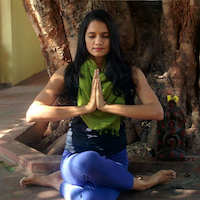After months of disagreement, lawsuits, and allegations of libel and defamation, the athleisure brand Alo, fitness app Cody, and body positive yoga teacher Dana Falsetti have finally reached an amicable agreement.
Dana gracefully took responsibility for her actions, displaying wisdom and forbearance, and Alo withdrew their lawsuit.
This drama holds various lessons for many of us who are part of the yoga community. It is a classic case study in corporate practices, copyright, and content protection, as well as business drivers for big corporations, start-ups, or individually-led ventures.
For anyone who is considering building a content-based business or sharing content at any point, it would be prudent to internalize some of this and a detailed perspective can be found here.
This episode also raises difficult but pertinent questions about the responsibilities of influencers toward the communities they bring together.
I’ve felt pulled in and frustrated at times watching this situation unfold from the sidelines, and as a member of the yoga community and as a staunch believer in the tenets of yoga, this is how I feel the spirit of yoga has been defeated.
1. Mindless or mindful communication:
Over the last month, we have seen extreme negativity: polarization of people, trolling of ambassadors, or even short tempers between those who disagree with each other. In general, we have become quick to anger, easy to outrage, and incredibly flippant in how we communicate.
It takes one small reason for real people to become irrelevant, which makes it easy for us to abuse and degrade them. Fueled by our ego, we feel self-righteous and are convinced that such defiance is warranted on the premise that others are “evil” and we’re “good.”
This attitude has resulted in a large number of practitioners taking an antagonistic and hateful stand against some brands and their supporters. Propagating such aggression has ethical, moral, and societal repercussions. That it was wrapped in platitudes of “be kind” is irrelevant and shows lack of pragmatism and leadership. I have even come across an instance where someone was tracked down online and harassed by an influencer’s fan because of a difference of opinion.
People are abusing each other and even influencers are having embarrassingly petty, public fights amongst themselves. Is this yoga?
The yogic path strictly discourages slander and use of harsh words against people, even on provocation. It does not favour being continuously agitated over worldly topics—as such, a person cannot be mentally calm for meditation. It teaches restraint, moderation, and the ability to fight our battles without “fighting.” It is through such detachment that a soldier can kill in war and yet be a yogi. This soldier cannot insult, nor does he like or dislike his opponent, nor does he gain anything personally, nor does he care if he wins or loses—but he does his best and is fully committed at all times to a higher consciousness. That is the real culture of yoga, whether through the Gita or the Yoga Sutras, and it is tough to implement.
“Non-violence in thought, word, and deed, truthfulness, and geniality of speech, the absence of anger even on provocation, disclaiming the doership in respect of actions, the composure of mind, abstaining from slander…are divine attributes.” ~ Bhagavad Gita 16.2 (Gita Press)
2. Heights of hypocrisy in the depths of a divide:
We have seen a consistent pattern of having different standards for ourselves than what we demand from others.
Some influencers stood to gain professionally if this fight went in Dana’s favour. And it was deeply discouraging to see them stand up for a cause like this, for the very first time, and mobilize their followers in an unpleasant way. Ownership of content was the pillar on which most of these arguments were based—making a case that Cody had forcefully kept material or that Alo was against their values.
Out of curiosity, I perused the Terms & Conditions of another platform similar to Cody which is run by a vocal influencer, and buried within 5,000-plus words of legalese was the following:
<ABC> is free to use any comments, information, ideas, concepts, reviews, or techniques or any other material contained in any communication you may send to us (“Feedback”), including responses to questionnaires or through postings to the < ABC> service, including the <ABC> website and user interfaces, worldwide and in perpetuity without further compensation, acknowledgement, or payment to you for any purpose whatsoever including, but not limited to, developing, manufacturing, and marketing products and creating, modifying, or improving the <ABC> service. In addition, you agree not to enforce any “moral rights” in and to the Feedback, to the extent permitted by applicable law.
Essentially, the platform is free to use whatever we submit to them—however, they like, for their benefit, without acknowledgment or payment.
This might sound grave, but it is what organizations do to legally protect themselves—though, this platform hasn’t shared what their agreement with teachers and others providing solicited material is. But if their content providers are allowed to exit with their content if they get acquired by someone else, they’ve possibly developed a benchmark contract from which a lot of us could benefit.
Taking up the “against our values” argument, brands have been accused of promoting an unreal and elitist view of yoga by using models and extreme postures to showcase their clothing.
Ironic, given that it is coming from all of us on Instagram, which is used by many as a marketing platform.
Go to any influencer’s page, and we see the same story line that we accuse brands of propagating: great photos, impossible postures, contests, sponsors, cool clothes, beaches, and the like. Are there many successful Instagram pages that put up elementary poses, clicked in drab locations, while wearing real pajamas?
Whether someone is into yoga as a sport or into yoga philosophy, everyone’s putting their best foot forward (rightfully so), based on their own capacity, resources, and vision.
Most popular feeds are curated, designed, shot and reshot, and then put up. I am not an opponent of what I call #yoga, but I am wary of trying to superimpose spirituality here—our spiritual practice is an internal journey, which can never be demonstrated, not in the least, by putting up padmasana pictures at fancy locations.
Let us not lose sight of the fact that Instagram is a very human endeavour, not a spiritual one. Brands or influencers—all are here to market their chosen message or thing.
In any event, this whole issue at the core is a business challenge, not a trial of yoga ethics. And influencers should be judicious before mobilizing people for a particular cause. And most certainly, if they stand to personally benefit in their professional endeavours through such an action, then with honour and due respect, they should recuse themselves from instigating people. But they did not, and so yoga lost.
3. Our responsibility toward ancient scriptures:
Finally, we let ego misuse the very same spirituality that we wanted to defend.
It’s been disappointing to watch the grave misapplication of Indian philosophy to justify individual actions. Reading the posts of some influencers with a million-plus followers was heart-wrenchingly frustrating. Followers were mobilized using quotes like the one below which was isolated from the chapter on Samkhya Yoga, and which reduces Gita to a battle cry.
“Now, if you will not undertake this righteous war, thereupon having avoided your duty and glory, you shall incur evil…” (abridged).
It would serve all of us well to read the Gita multiple times to truly understand it.
Gita is not about war.
An entire section of Mahabharata is dedicated to the efforts that were made to avoid the war. Krishna’s advice to Arjuna was to develop control over his mind, senses, anger, desires and then do his duty—which, particularly for Arjuna, was to fight in the war, as he was a trained soldier.
Krishna also explained that we need to choose our duty once and then stick with it for life. If we are not soldiers, then our ordained responsibility cannot be to fight. Else we can become a business person when it is convenient, a fighter when it suits, and a spiritualist when nothing else works. It isn’t allowed as per Gita’s tenets—once a soldier always a soldier.
Each person in that ideal society would similarly take up his or her duty as per inherent interests. This would theoretically allow communities to live cohesively and harmoniously while staying true to their duties. A lot more on this can be found in the Gita, but its message is certainly not as simple as: go fight.
The concept of duty also raises the questions, would these influencers have stood up for Dana’s cause if their interests were not involved? Have they taken up a similar cause or any cause for the community ever before? Will they consciously continue to be vocal about these issues for the rest of time?
Dana has been fighting the same battle for a long time, and she’s in it for the long haul, are the others too?
Yoga loses when influencers, or rather anyone, self-designates themselves as a benefactor and protector of ancient lineages. One, it reeks of ego, and second, it shows lack of self-awareness because the only way to protect spirituality is to practice it. Or else anyone can justify anything using spiritual concepts—that’s how we have wars and massacres in the name of God. It is the downside of making spirituality available without a “realized” Guru, who can guide us correctly when we interpret wrongly. Because ego can come up with the most beautiful ways to convince us to walk down the path of our own spiritual destruction.
“No matter what the practice or teaching, ego loves to wait in ambush to appropriate spirituality for its survival and gain.” ~ Chögyam Trungpa
It is great to spread the message of the Gita and of yoga; it is great to reflect, discuss, and learn from each other. But let us be supremely careful and think multiple times before using them to publicly justify our disputed actions.
In conclusion:
Yoga lost because we, the practitioners, forgot that the primary goal of a yogi is to become a better person by controlling his or her mind. And we do that not just with asana, not just by reading scriptures, not just with mindfulness—we need all and more with a dose of humility.
Yoga means control over the mind, not body.
Just by practicing asanas, we do not become yogis.
By reading Gita, we do not become Krishna.
By having followers, we do not become influencers.
We become all of the above by exercising control over our thoughts and senses. By understanding the broader context of the scriptures, not select verses. By focusing on the higher goals of humanity and by realizing they cannot be achieved with agitated minds.
Author’s note: I have intentionally written in a generic sense addressing all of us and all influencers. The article is not intended to be about specific individuals but the overall message and my apologies for the generalization.
~
For reference:
> When one Big Company picks on one Yoga Teacher. ~ Kino MacGregor
> The Truth behind Kino’s letter. ~ Paul Javid
> Alo, do the right thing—and we will all thank you. ~ Kino MacGregor
> Kino talks with Waylon about Alo and Dana & the Path of Yoga in an Instagram culture.
> From one non-famous Instagram Yogini to another.
Relephant:
~
Author: Namita Chandra
Image: Author’s Own
Editor: Catherine Monkman
Copy & Social Editor: Caitlin Oriel







Read 0 comments and reply